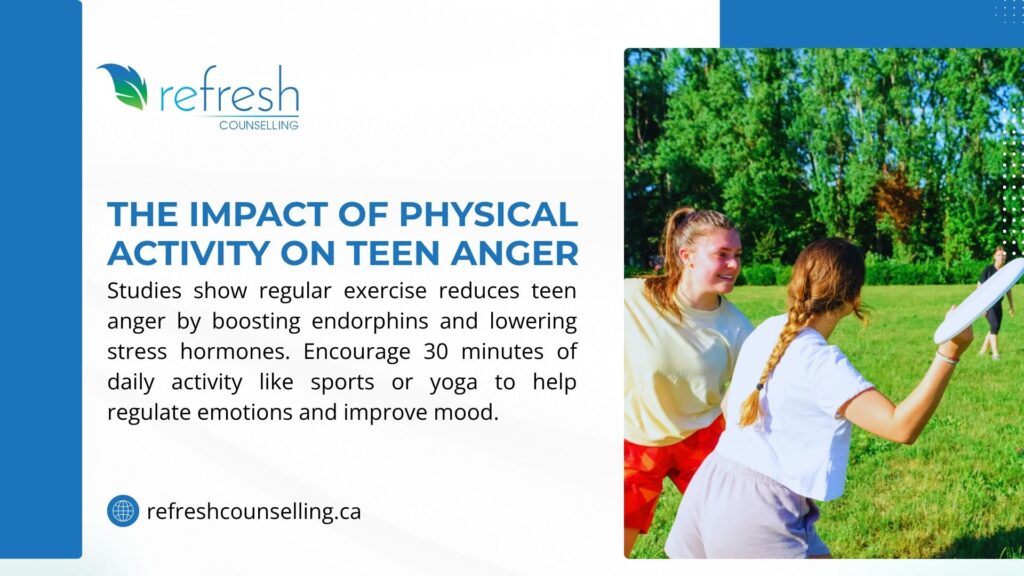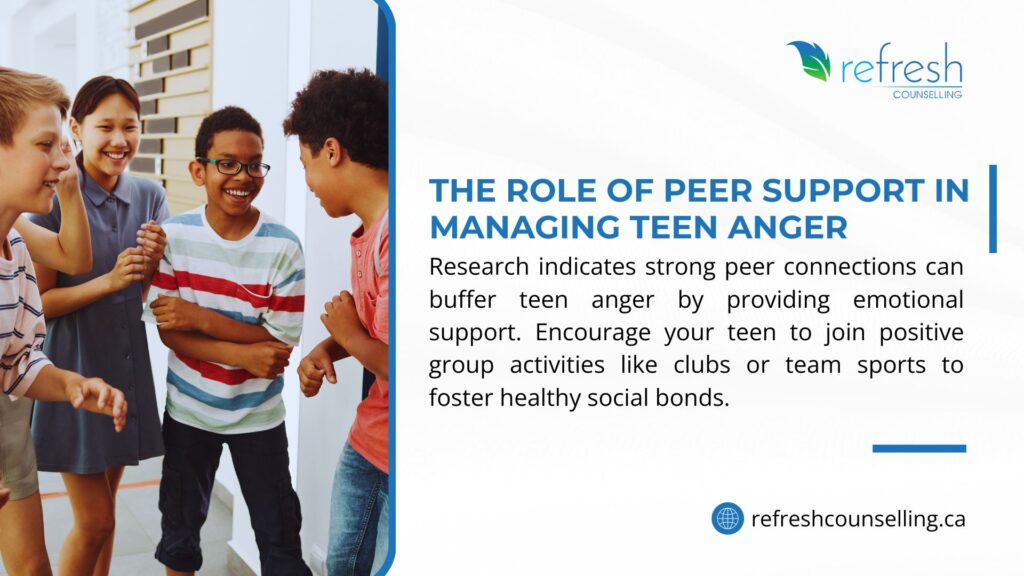The intensity of anger issues that a teenager has leaves most parents feeling helpless and confused. What we can do to prevent this is to understand how the mind of a teen works and the reason for the anger.
If you are a mother reading this article after another explosive argument with your teenager, you have come to the right place.
In this article, you will learn the reasons behind your teen’s anger, the appropriate ways to respond, and when to reach out for professional assistance.
I will share my experiences from working with hundreds of families with angry teens and describe some strategies that answer the question “Why is my teen so angry all the time?”
Here’s what we’ll cover:
- The science behind teen anger and why it happens
- How to tell normal teen anger from concerning anger problems
- Practical strategies that calm situations instead of making them worse
- Warning signs that mean it’s time to get professional support
- Real stories from families who found their way through
What’s Really Happening in Your Angry Teen’s Brain
Your teenager isn’t trying to make your life difficult on purpose. Their brain is literally under construction.
The prefrontal cortex (the part of the brain responsible for decision-making, social control, and emotional regulation) is still developing during adolescence. But at the same time, many parts involved in emotion are fully developed, particularly the limbic system.
This combination creates a situation where teens will often experience emotional situations at an extreme level, without the ability to regulate their emotional response.
Dr. Frances Jensen, a neurologist at Harvard Medical School, explains that teenage brains are like sports cars with sensitive gas pedals but weak brakes. Your teen feels everything at maximum intensity but lacks the brain development to slow down their emotional responses.
When your teen explodes over something that seems small, their anger is very stressful for them. So, in order to help you respond with patience instead of frustration, you need to understand the development process of a teen.
Common Triggers That Set Off Teen Anger
Trigger Category | What It Looks Like | Why It Happens |
Loss of Control | Anger over rules, curfews, phone limits | Teens crave independence but still need structure |
Social Pressures | Explosive reactions to friend drama | Peer relationships feel life-or-death important |
Academic Stress | Meltdowns over grades or homework | Academic pressure is at an all-time high |
Identity Confusion | Anger when questioned about choices | Teens are figuring out who they are |
Feeling Misunderstood | Rage when parents “don’t get it” | Communication gaps create frustration |
The thing that I have learnt from years of being a psychologist is that the anger issues that suddenly burst from a teenager come from a certain amount of stress.
Think of it like a gas cylinder that slowly fills up. The more it fills, the more pressure builds inside, and if there is no way to release some of that pressure, it can explode.
It’s very important for you as a parent not to put much stress on your kids, especially when it comes to the academic side of things. We all want our children to be successful and be good at school, but the thing is that academic pressure can crush your teens.
How To Help An Angry Teenager
Here is what you need to do:
- Stay Calm and Lower Your Voice
This might sound hard when your team is screaming, but your calm behavior can help your child to regulate its emotional state. I recommend that you always take three deep breaths before responding and do not respond the same way.
- Validate Their Feelings And Not Their Behavior
This is where most parents make mistakes, including me. The thing is that we always try to blame their angry behaviour of shouting and screaming, but we don’t understand how they are feeling at all.
Instead of saying things that are related to their behavior, try being more empathetic by understanding the way your child is feeling and what makes them explode like that.
- Set Clear Boundaries with Compassion
You can validate their feelings and still maintain the rules: “I can appreciate that you’re angry with the curfew, and we will be able to discuss it when you’re ready to have a calm conversation.”

When Teen Anger Becomes a Serious Problem
Not all teenage anger is normal developmental behavior. Sometimes, signs of teenage anger problems indicate deeper issues that need professional attention.
Watch for these red flags:
Warning Sign | What to Look For | When to Act |
Physical Aggression | Hitting walls, throwing objects, threatening violence | Immediately – seek help right away |
Self-Harm Behaviors | Cutting, burning, and extreme risk-taking | Same day – contact a mental health professional |
Persistent Anger | Daily explosions lasting weeks or months | Within a few days, schedule an assessment |
Substance Use | Using drugs or alcohol to cope with anger | Within 24-48 hours, get professional support |
Practical Strategies That Actually Work
After years of working with teenagers, I have seen which approaches make a real difference. Here are strategies that consistently help families dealing with angry teenagers:
- Create Emotional Check-In Times
Schedule brief, consistent conversations when there aren’t strong emotions present. Ask prompts such as, “How was your energy today?” or “What was the most difficult portion of your day?”. These conversations allow you to create connections and address problems before they blow up.
- Teach Emotional Regulation Skills
Has your teen identified their warning signs of anger? For example, do their hands clench? Is their jaw tight? Then practice some simple techniques, such as the 4-7-8 breathing, where you breathe in for 4 counts, hold for 7, and exhale for 8.
- Problem-Solve Together
The reason why many teenagers bring their problems more to their best friends than family members is that we, as parents, always have that goal of guiding our kids and always telling them what to do. And this can become very frustrating in certain scenarios.
If your teenager opens up their problems to you, don’t go directly to the solution.
Instead, try to show more empathy and ask some questions about the situation that has affected your child’s mood, but without being tiring. Then you can present your idea and what you think of the situation.

Why Teen Counseling Is Very Effective
Most teenagers who have been in a counselor’s office have had it easy to share and open up their problems. It has been the most effective method to avoid your child’s path of depression, overthinking, and many other problems.
Teen counseling includes:
- Individual sessions to process emotions and develop coping skills
- Family sessions to improve communication patterns
- Building skills for managing teen anger, anxiety, and stress
- Support for mental issues like depression or trauma
At Refresh Counselling, we’ve helped hundreds of teenagers who have gone through depression, anxiety, ADHD, overthinking, and abuse. If you also want to address your child’s mental health, you can learn more about us.
Creating Your Action Plan
If you’re dealing with teen anger issues in your family, here’s your step-by-step approach:
Step | Action | Timeline |
1 | Document patterns | Track anger episodes for one week |
2 | Start family check-ins | Begin this week with 10-minute conversations |
3 | Assess severity | Use the warning signs checklist above |
4 | Seek support if needed | Contact a professional within 1-2 weeks if red flags are present |
5 | Practice new strategies | Give new approaches at least 3-4 weeks to show results |
When to Reach Out for Professional Help
Don’t wait until the situation becomes unbearable. Early intervention often leads to better outcomes and shorter treatment times. Consider reaching out if:
- Your teen’s anger is affecting their school performance or friendships
- Family relationships are severely strained
- You feel unsafe or walking on eggshells constantly
- Your teen expresses thoughts of self-harm or hurting others
- Nothing you try seems to help for more than a few days
Getting the Help You Need
Dealing with teenage anger doesn’t have to destroy your family relationships. With the right support, most families see real improvements within a few months.
If your teen’s anger is affecting everyone in the house, professional counseling can help.
Refresh Counselling is rated as the NO. #1 mental health practice in Calgary to provide services related to your teen’s mental health. In just five years since our establishment, we’ve earned the trust of hundreds of parents whose teens have received compassionate, personalized care that truly makes a difference.
The best way to support your child’s mental well-being and answer the question “why is my teen so angry” is by speaking with a professional.
Reach out to our team today to explore how we can help your teen find peace and balance again.
Frequently Asked Questions on Teenage Anger.
- Why is my teen so angry?
An adolescent’s constant anger is generally due to some changes in brain development, stress, and feelings of being in control. The emotional part of the teenage brain develops faster than the decision-making part, making it very difficult for teenagers to deal with such strong feelings. Some common things that set off anger are pressure from school, social drama, family rules, and just about any struggle for independence experienced by every single teen.
- How Do I Help My Angry Teenager Calm Down?
As always, behave calmly and CURB YOUR VOICE when your teen is really angry. Your energies will convey their energies. Please, it’s very important for you as a parent to show empathy for the way they are feeling. Give them a moment to calm down.
- Does social media make teenage anger worse?
Social media is one cause of increasing teen anger from the angles of cyberbullying, endless comparison with others, and the decrease in their sleep from late-night browsing. The pressure to look good on the net and the FOMO (fear of missing out) create stress for them.
- Can diet or sleep impact teenage anger?
Yes. Both sleep and diet play the most important roles in forming a child’s neurological development. When your teen gets poor sleep and an irregular diet, it can make their anger issues much worse.
To maintain your kid’s mental health, please make sure that they get 8-10 hours of sleep, eat healthy, and avoid too much sugar. You don’t have to create a military strict diet for your teen, but it’s best to avoid foods that are bad for health.
